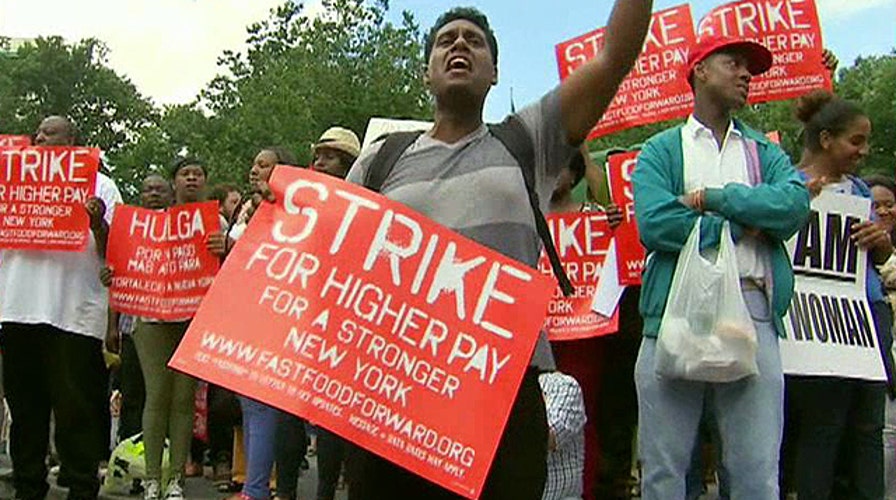Cavuto: Gov't to blame for making welfare too good to leave
The math makes it hard to get off the couch
If you could get paid to stay at home, would you?
I guess that would depend on how much you were paid, of course.
So, let me ask the question more precisely.
If you could get paid as much or more as you do at work, just sitting home on the couch, what would compel you to get off that couch?
Probably a lot. Certainly a lot more pay.
So no wonder when welfare and other key benefits are now averaging well north of 38,000 bucks in some locales, so many are staying at home in those locales.
They're not lazy. But they can do math. And the math makes it hard to argue ever leaving home.
Such are the findings of a Cato Institute study into benefit programs, such as welfare. They've gotten to the point that while they hardly make any of their recipients rich, they're rich enough not to make many of them want to leave home.
That's the state of welfare in America.
A program that started as a temporary lift to those in need.
Now an increasingly enriching and intoxicating benefit that's hard to leave.
And who can blame them?
I think most on welfare do want to work. But the government provides so many incentives for them not to work.
They're frustrated, but that doesn't make them lazy.
What it makes them are pawns of a big-government society that really has no interest in letting them go, but instead firmly clutching the apron strings it dare not loosen.
There's something very wrong with a society that places more emphasis on benefits than it does on jobs.
Obviously, when times are tough, it's understandable.
But without a limit, its abuse is also understandable.
And that's what an entitlement society gets you. A government more focused--to use an old line--on giving them fish than teaching them how to fish.
Some will say it's up to corporate America to up the ante and up the paycheck to make the math more compelling.
But I think that's backwards.
It's up to the government to quit making staying at home so rewarding.
We live in a society where many protest not over finding jobs, but securing benefits.
Not over checks for a good day's work, but a benefit that slowly chips away at the desire to work.
Many say it is callous to put a time limit on those in need.
I say it is even more callous to ignore sparking the kind of private sector job that negates that need.

